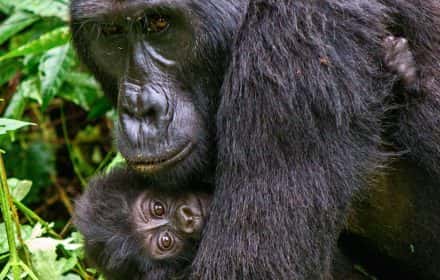This site uses affiliate links, meaning that if you make a purchase through our links, we may earn an affiliate commission.
Kenya is a must-visit destination for travelers seeking adventure, breathtaking scenery, and unforgettable wildlife encounters. However, planning a trip to Kenya as a first-time visitor can be overwhelming. To help you make the most of your trip, here are 11 must-know Kenya tips for first-time visitors.
From the stunning beaches along the coast to the rolling savannas of the Masai Mara, Kenya offers something for everyone. Whether you’re planning a safari or a beach vacation, these tips will help you navigate the country and enjoy an unforgettable experience. So, let’s dive in and discover what Kenya has to offer!
Best Kenya Tips for First-Time Visitors
- 1. 11 Must-Know Kenya Tips for First-Time Visitors
-
- 1.1. Get a Kenyan Visa Online And Prepare Required Documents
- 1.2. Get Vaccinated to Protect Your Heath
- 1.3. Take Necessary Health Precautions While Visiting Kenya
- 1.4. Packing Tips for Traveling to Kenya
- 1.5. Essential Tips on What to Wear in Kenya
- 1.6. Learn Basic Swahili Phrases
- 1.7. Tipping Practices in Kenya
- 1.8. Carry Your Passport With You
- 1.9. Leave All Your Plastic Bags at Home
- 1.10. Take It Easy in Kenya (Pole Pole)
- 1.11. Ask Permission Before Taking Photos of People or Infrastructure
- 2. Intrepid Scout's Tips for First-Time Travelers to Kenya
11 Must-Know Kenya Tips for First-Time Visitors
Get a Kenyan Visa Online And Prepare Required Documents
To enter Kenya, most foreign visitors need to obtain a visa. Here’s what you need to know:
- The easiest way to get a Kenyan visa is to apply online for an e-visa. This can be done through the Republic of Kenya Electronic Visa Application System and the process usually takes a few days.
- IMPORTANT: Travelers can no longer get a visa on arrival in Kenya. Passengers on international flights to any Kenyan airport need to have a valid e-visa. Visa-on-arrival facilities at Kenyan airports, including Nairobi, have been discontinued.
- Apply for your visa at least 30 days in advance of your trip.
- The application is quite detailed. You will need to provide addresses, phone numbers, and websites for all your accommodations. You also need to provide a travel itinerary, proof of a return air ticket, and a recent color photograph.
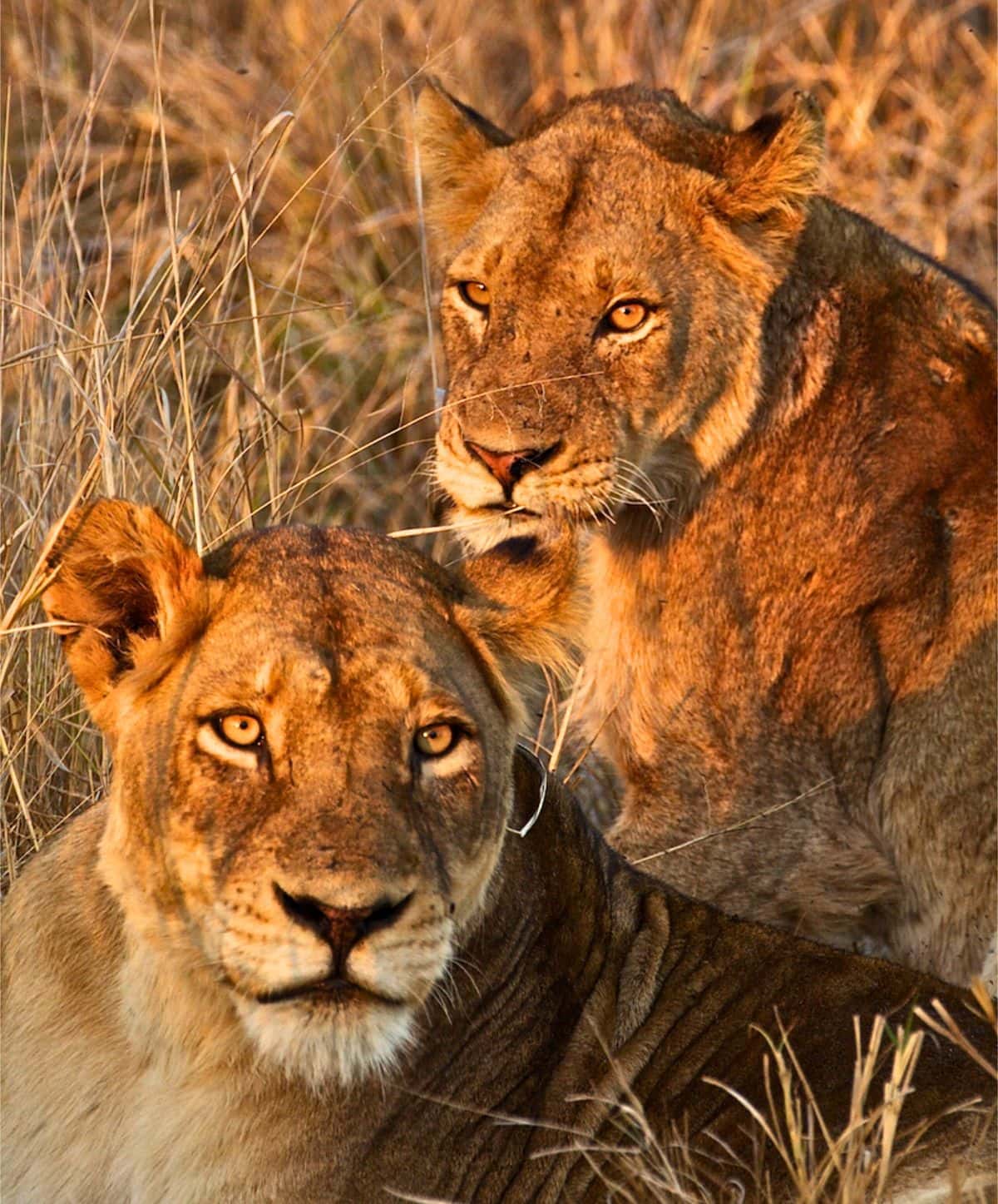
Gamewatchers Safaris Porini Mara Camp within the Ol Kinyei Wildlife Conservancy / Kenya Tips for First-Time Visitors
- To obtain a Kenyan visa, you will typically need to provide a valid passport, a passport photo, proof of onward travel (such as a return flight ticket), addresses, phone numbers, and websites for all your accommodations, and a travel itinerary. Depending on your country of origin, you may also need to provide additional documents or undergo a medical examination.
- The cost of a Kenyan visa varies depending on your nationality and the type of visa you require. As of 2023, the cost of a single-entry tourist visa is $51 USD for most countries, while a multiple-entry visa costs $100 USD.
- A single-entry tourist visa is usually valid for 90 days from the date of issuance, while a multiple-entry visa is valid for up to one year. Be sure to check the validity of your visa before traveling to Kenya, and make sure to renew it if necessary.
- It is always a good idea to check with your local Kenyan embassy or consulate to confirm the latest visa requirements and fees before you travel.
Get Vaccinated to Protect Your Heath
When traveling to Kenya, take steps to protect your health and prevent illnesses. Here are some key vaccinations:
A yellow fever vaccination is required for all travelers entering Kenya from countries with a risk of yellow fever transmission. The World Health Organization (WHO) maintains a list of countries at risk of yellow fever transmission, which is updated regularly. Some of the countries on the list include parts of Africa, South America, and Central America. However, the list can change, so it is best to check the latest information with the Kenya embassy or consulate in your country before traveling.

Cheetah at Gamewatchers Safaris Porini Mara Camp within the Ol Kinyei Wildlife Conservancy / Kenya Tips for First-Time Visitors
In addition, the following vaccinations are also recommended for most travelers to Kenya:
- Hepatitis A: This vaccination is recommended for all travelers to Kenya, as the disease can be contracted through contaminated food or water.
- Typhoid: Typhoid is another bacterial infection that can be contracted through contaminated food and water. The vaccination is recommended for most travelers to Kenya.
- Hepatitis B: This vaccination is recommended for travelers who may have sexual contact with local people, need medical treatment while in Kenya, or engage in any activities that may expose them to blood or bodily fluids.
- Meningococcal: This vaccination is recommended for travelers who plan to have prolonged contact with locals or stay in crowded areas.
- Rabies: Rabies can be contracted through the bite or scratch of an infected animal, and is prevalent in Kenya. The vaccination is recommended for travelers who plan to spend a lot of time outdoors or have close contact with animals.

Oryx at Gamewatchers Safaris Porini Mara Camp within the Ol Kinyei Wildlife Conservancy / Kenya Tips for First-Time Visitors
These recommendations may vary based on your health status and travel plans, so it is best to consult with a travel health specialist or your healthcare provider to determine the appropriate vaccinations for your trip.
My healthcare provider recommended the following vaccinations based on my age and destination: typhoid fever, and meningitis. Also, because I was also visiting Uganda on the same trip, I had to get the yellow fever vaccination which was a requirement.
In addition, I was also given a prescription for anti-malaria pills to begin taking a day before entering the country and continue for 2 weeks after leaving.
Take Necessary Health Precautions While Visiting Kenya
When traveling to Kenya, take some basic health precautions to protect yourself from illness and injury.
- Tap water is not safe to drink in Kenya due to the risk of waterborne illnesses such as cholera and typhoid fever. Stick to bottled or boiled water and avoid ice cubes or drinks made with tap water. If you must drink tap water, use a water filtration system or water purification tablets.
- Wash your hands often with soap and water. Carry hand sanitizer for times when you do not have access to soap and water. This can help prevent the spread of germs and illness.
- It is important to practice good hygiene habits while traveling in Kenya. This includes showering regularly and brushing your teeth with bottled or boiled water.
- Protect yourself from mosquitoes. Mosquito-borne illnesses like malaria and dengue fever are common in Kenya. Use insect repellent with DEET. Wear long sleeve shirts and pants. Sleep under a mosquito net to reduce your risk of getting bitten. It is also a good idea to take antimalarial medication as recommended by your doctor.
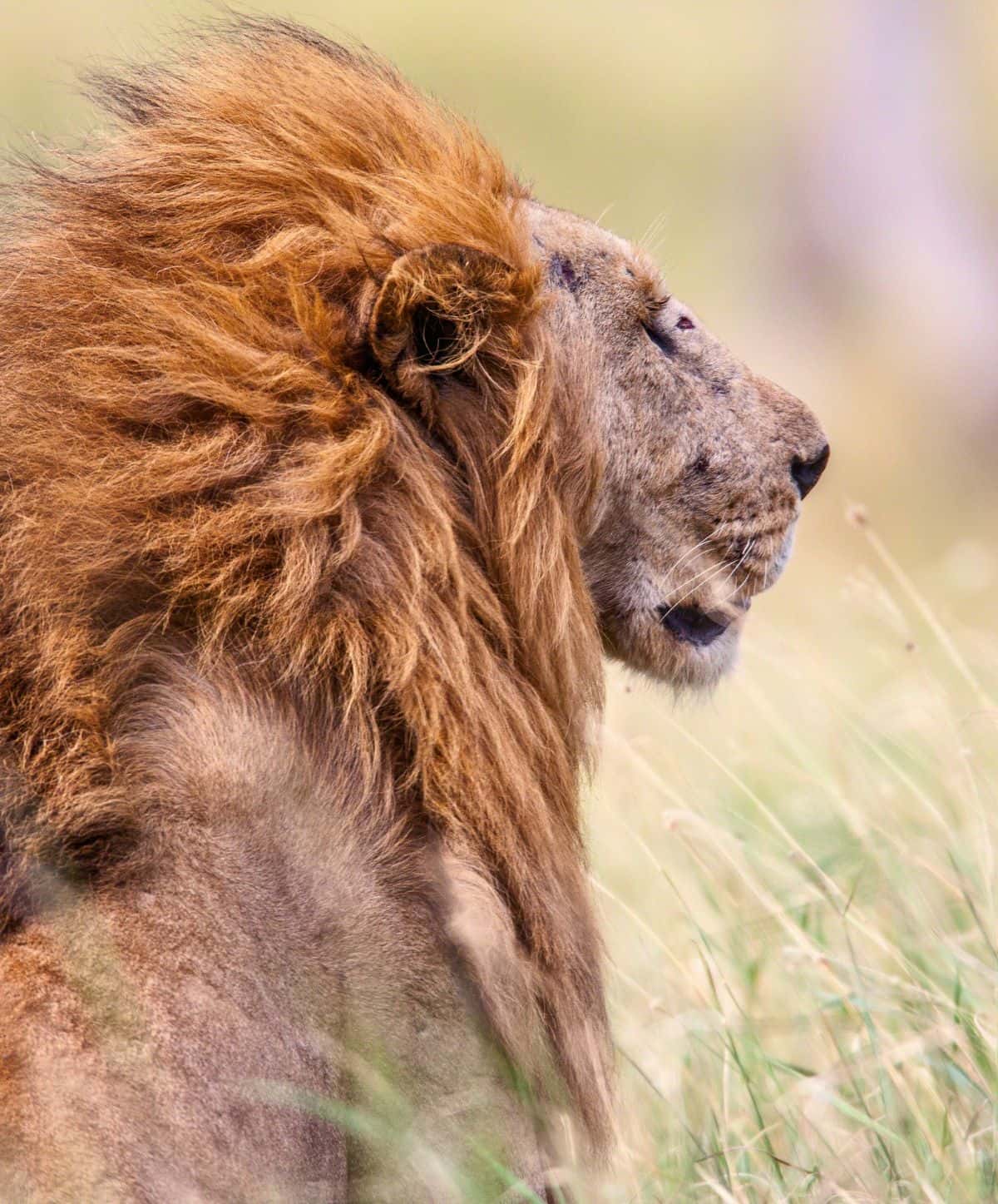
Lion at Gamewatchers Safaris Porini Rhino Camp within the Ol Pejeta Wildlife Conservancy / Kenya Tips for First-Time Visitors
- Get travel insurance. Medical care can be expensive in Kenya, so have travel insurance that covers medical expenses, as well as emergency evacuation in case of serious illness or injury. Make sure to review your policy and understand what is and is not covered.
- While the wildlife in Kenya is a major draw for most travelers, it is wise to remember that wild animals are unpredictable and can be dangerous. Follow the advice of your guide or park rangers, and keep a safe distance from animals at all times. Never attempt to feed or touch wildlife, and avoid walking alone at night or in areas where wildlife may be present.
- In addition to waterborne illnesses, foodborne illnesses can also be a risk in Kenya. To avoid getting sick, it is recommended to avoid raw or undercooked meats and seafood, as well as fruits and vegetables that have not been washed or peeled.
- Protect yourself from the sun. Kenya is located near the equator, and the sun can be intense. To avoid sunburn and heatstroke, wear sunscreen with a high SPF, a hat, and sunglasses. It is also a good idea to stay hydrated and take breaks in the shade during the hottest parts of the day.
- While you hope that nothing goes wrong during your trip, be prepared for emergencies. Make sure to carry a first aid kit with basic supplies like bandages and antiseptic, as well as any prescription medications you may need. It is also a good idea to have a plan in case of an emergency, including the contact information for local hospitals and emergency services.

Giraffes at Gamewatchers Safaris Porini Rhino Camp within the Ol Pejeta Wildlife Conservancy / Kenya Tips for First-Time Visitors
Packing Tips for Traveling to Kenya
- With the tropical climate in Kenya, the sun can be quite strong. Sunscreen is a must when traveling to Kenya. Look for a high SPF and apply it liberally throughout the day. You’ll also want to pack a hat and sunglasses to protect your face and eyes from the sun’s rays.
- Mosquitoes can be a problem in some parts of Kenya, especially during the rainy season. They can carry diseases like malaria and dengue fever, so protect yourself from bites. You can buy insect repellent in Kenya, but it is a good idea to bring your own as well. Look for a repellent that contains DEET, and be sure to apply it frequently, especially during the evening hours.
- If you take any prescription medications, be sure to bring enough to last for the entire trip. You’ll also want to pack a small first-aid kit with items like band-aids, antiseptic wipes, and pain relievers.
- Kenya uses Type G electrical outlets, which are different from those used in the US and other parts of the world. Be sure to pack a power adapter if you plan on using any electronics like cameras, phones, or laptops.
- Kenya is known for its wildlife and stunning natural landscapes, so you’ll want to capture all the amazing sights. Be sure to pack a camera with a zoom lens and binoculars for wildlife viewing.
- While most places in Kenya do accept credit cards, it is always a good idea to carry some cash for smaller purchases or in case of emergencies.
Essential Tips on What to Wear in Kenya
Kenya can have varying weather conditions depending on the time of year and location within the country.
If you are planning to go on a safari, make sure to bring clothes that can keep you warm during chilly morning game drives, such as a jacket or sweater. If you are planning to visit the coastal regions, pack clothes that are lightweight and breathable for the hot and humid weather.
Before you start packing, be sure to check the weather forecast for the time of year and location you’ll be visiting. This can give you an idea of what to expect in terms of temperatures and weather conditions, and help you pack accordingly.
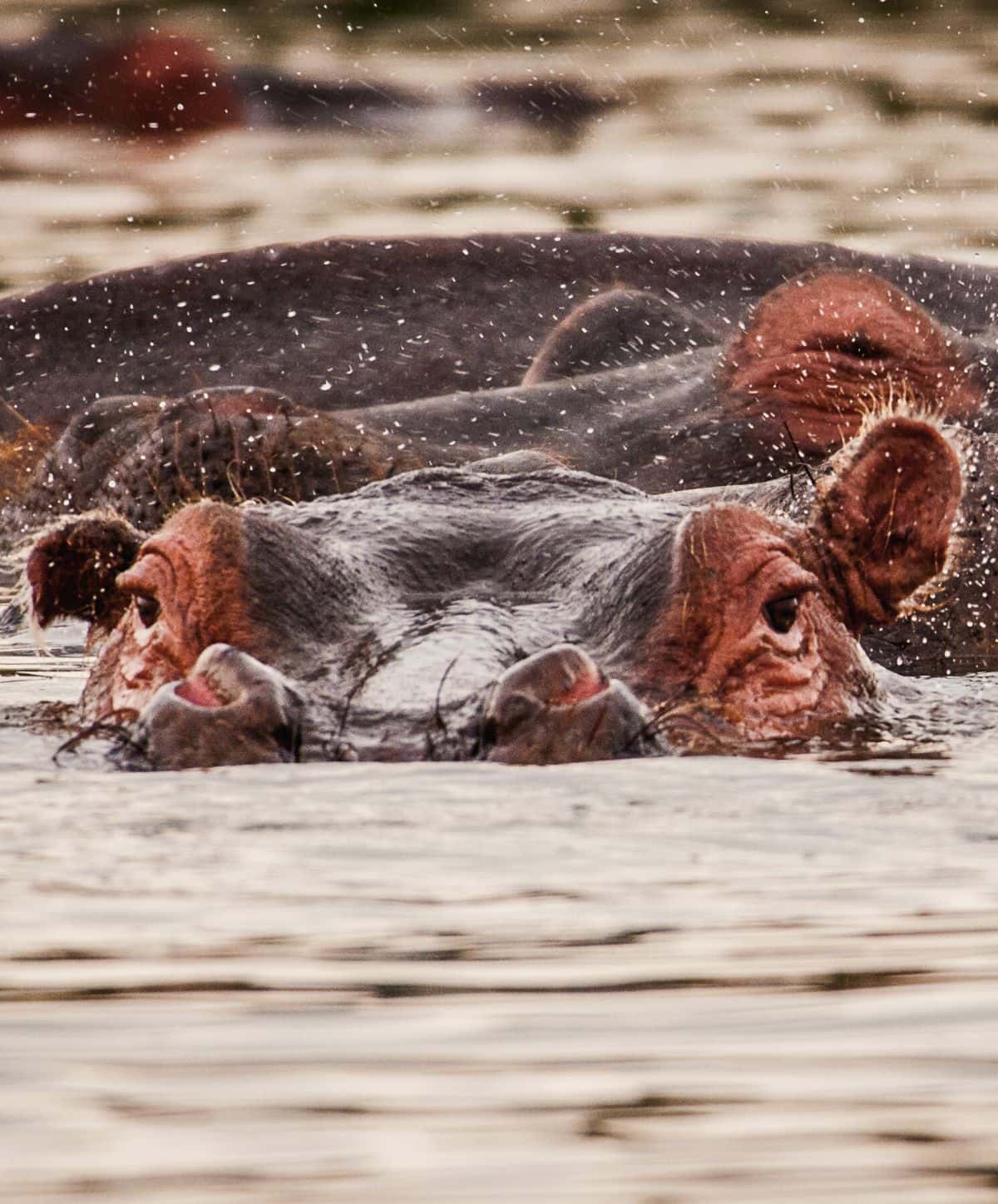
Hippos at Gamewatchers Safaris Porini Mara Camp within the Ol Kinyei Wildlife Conservancy / Kenya Tips for First-Time Visitors
Here are essential tips on what to wear in Kenya when you go on a safari:
- When going on safari, the mornings can be quite chilly while the afternoons can be quite hot. To stay comfortable throughout the day, it is best to dress in layers. This way, you can easily remove or add clothing as needed.
- If you’re traveling during the rainy season (which varies depending on the region), be sure to bring a waterproof jacket or poncho. This will keep you dry during any unexpected rain showers.
- When it comes to color, it is best to stick to neutral and muted colors such as khaki, beige, brown, and green. These colors blend in with the natural surroundings and do not disturb the wildlife.
- Depending on the activities you have planned, be sure to bring appropriate footwear. Bring comfortable, closed-toe sturdy shoes.
- When packing your clothing, consider the cultural norms in Kenya. Generally, it is best to dress modestly and avoid clothing that is too revealing or provocative.
Learn Basic Swahili Phrases
While English is widely spoken in Kenya, learning some basic Swahili phrases can go a long way in helping you communicate with locals and make a good impression.
Here are some words and phrases to learn:
- Hello: Jambo
- Welcome: Karibu
- Goodbye: Kwaheri
- Thank you: Asante
- Yes: Ndiyo
- No: Hapana
- Please: Tafadhali
- Excuse me: Samahani
- How are you?: Habari gani?
- I’m fine, thank you: Nzuri, asante
- What is your name?: Jina lako nani?
- My name is ___: Jina langu ni ___
- Have a good journey: Safari njema
- Good night/sleep well: Lala salama
- Take it easy: Pole pole
Even if you only know a few phrases, using them can show locals that you respect their culture and are making an effort to communicate with them. Don’t be afraid to practice and make mistakes – most people will appreciate your effort and may even help you improve your Swahili.
Tipping Practices in Kenya
It is a good idea to bring some cash when traveling to Kenya. Especially small denominations of $1, $5, and $10 bills for tipping and small purchase.
US dollars and euros are widely accepted.
Tipping is customary in Kenya, especially in the tourism industry. Below are just general guidelines, and you should always tip based on the level of service provided. Tipping is not mandatory, but it is a way to show appreciation for good service and support the local economy.
- Safari guides and drivers: In addition to the standard 10-15% of the cost of the service, you can also tip based on the level of service provided. For example, if your guide goes above and beyond to make your safari experience memorable, you can consider tipping more generously.
- Hotel staff: In addition to housekeeping and baggage handlers, you can also tip other hotel staff, such as the concierge or restaurant servers. If a service charge is not included in the bill, a tip of around 10% of the total bill is appropriate.
- Transportation services: If you use a taxi or ride-sharing service, a tip of around 10% is appropriate. You can also round up the fare to the nearest whole number.
- Cultural experiences: If you participate in a cultural experience, such as a traditional dance performance or a visit to a local village, it is appropriate to tip the performers or guides. A tip of around 100-200 Kenyan shillings (equivalent to 1-2 USD) is appropriate.
Carry Your Passport With You
It is a good idea to carry a form of identification with you when traveling in Kenya, and your passport is the best form of identification to carry.
Also, keep your passport safe and secure, as losing it or having it stolen can be a major hassle.
Here are some tips for carrying your passport in Kenya:
- Keep it in a secure place: When you’re not using your passport, keep it in a secure place, such as a hotel safe or a hidden money belt. Avoid carrying it in your back pocket or leaving it unattended in your hotel room.
- Carry a photocopy: Make a photocopy of your passport and carry it with you. This can be useful if you need to show identification but don’t want to risk losing your actual passport.
- Be aware of local laws: In Kenya, it is technically required to carry your passport with you at all times. However, in practice, you may not be asked to show your passport unless you’re stopped by the police or other authorities. If you are not comfortable carrying your passport with you, consider carrying a copy or another form of identification.
- Use a passport holder: If you do carry your passport with you, consider using a passport holder or cover to protect it from damage and wear.

Baby White Rhino at Gamewatchers Safaris Porini Rhino Camp within the Ol Pejeta Wildlife Conservancy / Kenya Tips for First-Time Visitors
Leave All Your Plastic Bags at Home
The plastic bag ban in Kenya was implemented in August 2017, making it illegal to produce, sell, or even use plastic bags in the country. The ban is aimed at reducing the amount of plastic waste that ends up in the environment, particularly in oceans and waterways.
The ban applies to all plastic bags, including those used for carrying groceries, as well as plastic packaging used for items like electronics and clothes. Violators of the ban can face fines of up to $38,000 or up to four years in jail.
Since the ban’s implementation, Kenya has seen a significant reduction in the amount of plastic waste generated, and other countries in the region, such as Tanzania and Rwanda, have followed suit with similar bans.
As a traveler to Kenya, be aware of the plastic bag ban and its implications. While it may be tempting to bring plastic bags or other single-use plastic items with you for convenience, doing so can result in penalties and harm the environment.
Instead, consider bringing your own reusable bags, water bottles, and utensils with you to reduce your reliance on single-use plastics. Many hotels and restaurants in Kenya have also started providing alternatives to single-use plastics, such as refillable water stations and metal straws.
By being conscious of your plastic use and making small changes to your habits, you can help support Kenya’s efforts to reduce plastic waste and protect the environment.
Take It Easy in Kenya (Pole Pole)
The phrase “pole pole” is deeply ingrained in Kenyan culture and reflects the country’s values of patience, hospitality, and community.
It means “slowly” or “gently” in Swahili, and it is often used to encourage someone to take their time or to be patient. It can also be used to convey a sense of relaxation or calmness.
In Kenya, the phrase “pole pole” is often used in a variety of contexts, such as when giving directions, offering advice, or just greeting someone. It is a friendly and informal way to encourage someone to relax and take things at a slower pace.
So, if you hear someone say “pole pole” to you while in Kenya, it is likely that they are encouraging you to slow down and take it easy.
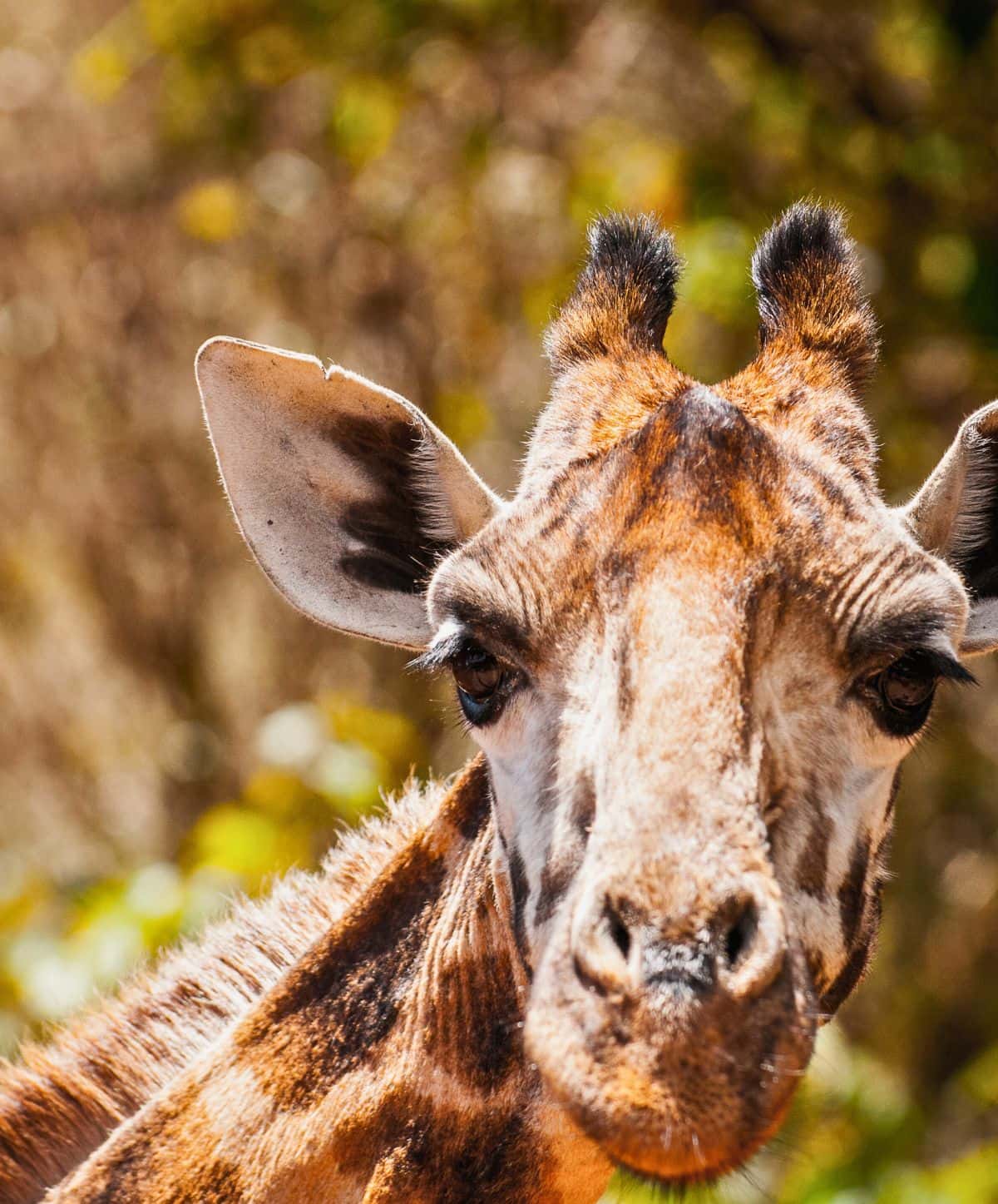
Giraffe at Gamewatchers Safaris Porini Rhino Camp within the Ol Pejeta Wildlife Conservancy / Kenya Tips for First-Time Visitors
Ask Permission Before Taking Photos of People or Infrastructure
Ask for permission before taking photos of people or infrastructure in Kenya.
When taking photos of people in Kenya, it is important to obtain their consent first. Taking photos without permission can be considered intrusive and disrespectful.
Also, anyone taking photos of infrastructure, airports, and the military may come under suspicion.
Intrepid Scout's Tips for First-Time Travelers to Kenya
- Check your passport to be sure it is valid for at least 6 months after your trip. Kenya requires at least one clear page in your passport.
- Kenya has a rich and diverse culture, be respectful of local customs and traditions. Dress modestly when visiting religious or cultural sites, and ask for permission before taking photos of people or sensitive locations.
- While Kenya is generally a safe destination for travelers, take precautions to protect your safety. Avoid walking alone at night, keep your valuables secured, and be aware of your surroundings at all times.
- One of the best ways to experience the culture and traditions of Kenya is to support local businesses and communities!
- Kenya has made great strides in reducing plastic waste, and as a traveler, you can do your part by avoiding single-use plastics and supporting businesses that prioritize sustainability.
Have fun and embrace new experiences: Kenya is a beautiful and diverse country, with plenty of opportunities for adventure and exploration. Be open to new experiences, try new foods, and connect with the local people to make the most of your trip.
Did You Find This Useful?
Why Not Save Kenya Tips for First-Time Visitors to Your Pinterest Board!


Now, It Is Your Turn, I Would Like to Hear Back from You!
Are you planning your trip to Kenya?
Please let me know! Drop me a quick comment right below!
Click on any of the images below to get inspired and to help you with the planning process for your trip to Kenya!

